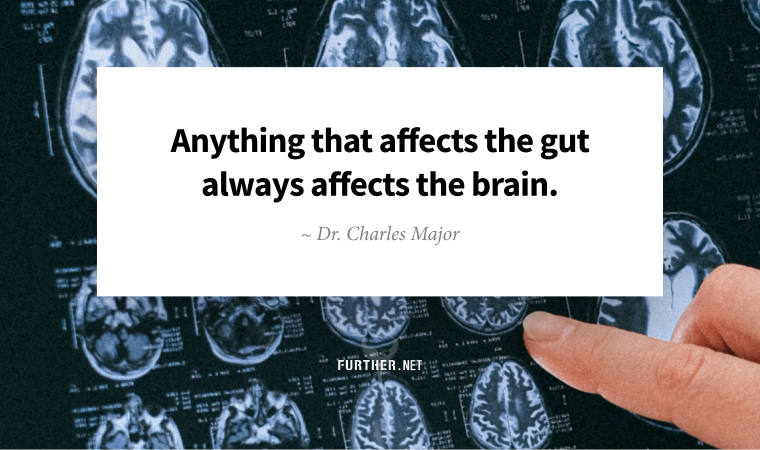
Remember the beginning of the pandemic when there was a global toilet paper shortage?
Turns out that the gut reaction of consumers worldwide made sense not only from a scarcity perspective, but also from a scientific one. As we faced an unprecedented stressor, our bodies responded with both physical and mental upset. This is because the “gut-brain axis” plays a significant role in our well-being.
From this connection, researchers have been able to link gut issues (like dysbiosis — when good bacteria is low) and inflammation in the gut to mental health disorders.
Your “gut microbiome” — the ecosystem of bacteria that lives in your intestinal tract — is shown to profoundly impact your health. And it can be the belly of the beast for mood disorders.
The Mind-Belly Connection
If you’ve ever experienced butterflies in your stomach before doing something nerve-wracking, you know there’s a genuine connection between your psychological state and digestive physiology. That’s because you have a “second brain” in your gastrointestinal tract: millions of nerve cells that send signals to your central nervous system, creating mood changes along with physical symptoms like stomach pain or upset.
This is why research shows around 60% of patients with anxiety and depression also have gastric issues like irritable bowel syndrome (IBS).
Also, your gut bacteria produce much of your body’s essential neurotransmitters for mental health, including serotonin, dopamine, GABA, and norepinephrine. While more research is needed to understand better how the connection between mind and gut microbiome works, it’s clear that they’re interconnected.
Ditto on your gut-based immune system — again, how it works needs further study, but the connection between inflammation and degeneration and mental health challenges is apparent and compelling.
The Middle Road
Improving your gut health is simple; start by checking your diet. After all, bacteria and chemicals in the gut microbiome help moderate the vagus nerve, the primary connection between the brain and intestinal tract.
As Dr. Emeran Mayer, author of The Mind-Gut Connection, explains:
Several molecules generated by gut microbes from the food we eat can reach the brain via the circulation. They can also “activate receptors on vagal nerve endings, which in turn generate vagal signals to the brain.
As it is with pretty much everything else health-related, the best diet is primarily plant-based, full of antioxidant-rich fruits and vegetables, plus fermented foods for probiotics. (Finally, my kombucha obsession is validated!) And keep your intake of processed food, refined sugar, and red meat to a minimum.
Additionally, mindfulness practices like meditation, yoga, and breathwork can help reduce gastrointestinal distress and improve mood.
Bottom line: if you want to live a happier, healthier existence, go with your gut.
The Gut-Brain Axis: How Your Gut Affects Your Mental Health (c|net)
Understanding the Gut-Brain Connection (Psychology Today)
